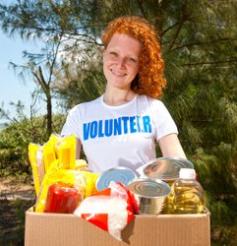Andrew Chaggar responds to Rory Carroll's article in the Guardian last month calling for an end to 'aid tourism in Haiti'.
Having lived and worked in Port-au-Prince for six months I can certainly relate to some of Rory Carroll's views and observations expressed in his article entitled 'Save Haiti from aid tourists', published by the Guardian last month.
Last Saturday, for example, I waited at Port-au-Prince airport to collect our latest volunteer. There’s been chaos with flight cancellations recently due to the volatile political situation and generally peaceful demonstrations sometimes turning violent. Perhaps as a result of this, the incoming volunteers and aid-workers were a little more disparate than usual, even for Haiti, but still, they were coming. And I watched while volunteers filtered through. While I’ve seen groups of volunteers include young children, for the first time ever I saw someone with an actual newborn baby walk out of arrivals. At another point a gentleman actually stopped to pass ten dollar bills through the fence to the destitute gathered outside.
Both of these incidents were at best silly and at worst reckless. However, given that I also co-founded and now run a registered charity that openly invites volunteers without prior experience to work with us for short lengths of time, I have to say I’m also concerned about Mr Correll’s homogeneous definitions of “aid tourists” and “professional NGOs”.
Having gained a masters in international development, specialising in humanitarian action, I’ve studied key texts about how much damage misplaced good intentions and the “charitable impulse” can do. Perhaps Mr Carroll has read, for example, Alex de Waal’s Famine Crimes or Joanna Macrae’s Do No Harm. If he has, he will also be aware that “professional NGOs” have frequently done as much, if not more harm than your average private citizen.
With different organisations, I’ve worked with literally thousands of volunteers over five years in three separate disaster zones. I’ll be the first to admit that sometimes approaches and results were very questionable. However, on many occasions and with the appropriate guidance outcomes have been dramatically successful. In my experience it’s institutional culture, understanding of context and above-all a cool-head that makes the difference, regardless of NGO name, mandate or size.
Size doesn't matter
The latter point, about the size of an NGO being important, is also something that causes me to raise my eyebrows. When I started blogging for Civil Society I came across this blog by Celina Rebeiro. In it was the following:
"There is definitely a place for these small grassroots organisations the Lancet pines after, but how does Maria Normal in Sheffield support an orphanage run by a few nuns outside Port-au-Prince if not via a megalithic entity like an international NGO."
Well for $8,000, mostly raised by volunteers, we’ve just managed to move 47 kids, living in tents since the earthquake, to a new rental property. During the 2-year lease we’ll help them develop a sustainable plan for the future so that they can live dependence-free.
A necessary diversity
Going back to Mr Carroll’s article he points out there are literally thousands upon thousands of NGOs in Haiti. While of course not all of these, or even most of them, are appropriate or going to be successful overall I would argue that a plurality of NGOs and strategies are essential in disaster zones, Haiti included.
The wide-ranging nature of challenges and poverty here means no one group or individual can ever have all the answers. A large number of NGOs means by extension a large number of different approaches and I’ve been happy to observe some very innovative and progressive solutions coming from start-up organisations.
I’ve noted in other blogs that large, established NGOs are essential in saving lives and leveraging resources. However, I’ve also argued, here included, that small innovative organisations have an equally important role to play that can be complimentary and not competitive.
While not directly related to projects and programmes, going back to the case of the airport provides a great illustration. While we’re a small group I was personally there and ready to meet our latest volunteer as she walked out of the arrivals gate.
At the same time two of the largest NGO’s (one mentioned in Mr Carroll’s article as “professional”), with hundreds of staff, had both left new arrivals stranded due to the flight chaos. Having offered them both drinks and loaned them my mobile phone so they could call and arrange collections, we were whisked off in a hired taxi while they sat waiting for expensive, leased 4x4 jeeps to arrive.
So before you make assumptions about professionalism, remember disaster zones are a great equaliser.
Andrew Chaggar is executive director of European Disaster Volunteers which he co-founded in 2008









